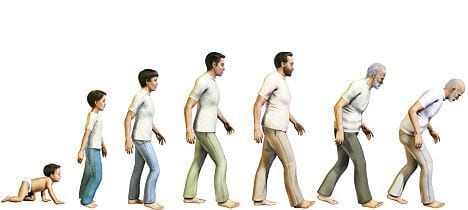 I went to London this week and sat in my seat of choice – a table seat, facing forward, next to the window for the view and the socket to power my laptop. Now getting a table seat means that you are in for an adventure as you don’t know who your 3 companions will be. This is the other reason for my chosen seat, because then my good hearing ear is facing the other three seats so I am ready for the conversations that may come.
I went to London this week and sat in my seat of choice – a table seat, facing forward, next to the window for the view and the socket to power my laptop. Now getting a table seat means that you are in for an adventure as you don’t know who your 3 companions will be. This is the other reason for my chosen seat, because then my good hearing ear is facing the other three seats so I am ready for the conversations that may come.
On this trip, a pinstriped man got on at Leeds, sat opposite and was all computer spreadsheets and mobile calls back to the office. When we got to Peterborough the other two spaces were taken by two extrovert women who were plotting their day’s shopping in Oxford Street. They were incessantly chatty covering topics ranging from the attractiveness of the train guard to how you would remove the emergency window, the strawberry scent in the toilet and the scary things on their Facebook. Their breathless chatter sounded all the more southern on the 08.45 from West Yorkshire.
We never got talking because we all felt so different and didn’t have a clue what we would say to one another. Maybe we were lost in our own worlds.
This is a big problem in our society. We don’t understand people who are different from us. The white working classes are incomprehensible to the upper middle classes, young Asians are a mystery to people who have been living in the same seaside town for generations. When we are faced with this we stereotype or view others with a sense of condescension or threat.
This is only exacerbated by the ways we choose to relate today. Instead of meeting in mixed local communities we interact through interest groups and follow those we like. By definition, this tends to exclude those who are different and only serve to entrench ignorance of the other.
Such mutual unfamiliarity isn’t new. I remember family Christmases in the early 1970s when my paternal grandad from Doncaster would share a week with my maternal grandmother from Kent. He would sit at one end of the lounge smoking his Woodbines as the cloud of nicotine descended to knee height while she would sit by the opposite window, rubbing her eyes as she read her People’s Friend.
Of course, as a middle-class Christian orientated toward inclusion I have the right attitudes and won’t excuse prejudice. On top of this, I will pray and donate to alleviate poverty and discrimination. But doing that doesn’t mean that I am at home with or welcoming to others, it just means that I care at a distance.
We live in a globally interconnected world, yet as individuals we struggle to “get” people in our own country who are different from us. This is important at this time. In an election, we are asked to vote for politicians who don’t really believe or understand us and will “get” us even less when they are sent to Westminster. We are offered policies that often appeal to our differences rather than what brings us together. The people we vote for will have a responsibility to engage with international challenges, like climate change, migration, care for an ageing populations etc. and not just to vote for tribal vested interests.
A local church is a good place to bridge differences and build a common understanding. Finding growing diversity in our church is a good thing. This is fragile for two reasons – people often select the church that meets their taste which works against variety and secondly, the diversity can remain superficial and therefore uninspiring in the long run. That is why it is vital to try to relate more deeply within our church and to interact with other groups.
There are hopeful signs are when we not only meet people different from us, but when we share deeper conversations, laughter, tears and experiences together.
In the past year, I have enjoyed playing local cricket and meeting young Asians and local people from West Yorkshire villages and sharing sport and relaxation after the games. And we don’t just talk about sport!
I imagine we can learn so much by reading widely and watching a variety of films, in order to be stimulated by different views.
I have found it exciting to get involved with groups campaigning for a better Leeds because I meet people unlike me who are not being polite, but engaged in something they are passionate about.
One of the most dispiriting things I see is people lecturing other people, whom they don’t understand and haven’t listened to, on how they should live and vote and what they should believe.
On the other hand, one of the most exciting things is witnessing people coming together, forming relationships and discovering what they care about in the world.
I wonder how we give time to meet people unlike us and take the opportunity to share fun, tears and deeper things of life.
Graham Brownlee
27 April 2017




 In Shakespeare’s play “As You Like It” one character Jaques makes a speech describes ‘the seven ages of man’.
In Shakespeare’s play “As You Like It” one character Jaques makes a speech describes ‘the seven ages of man’.